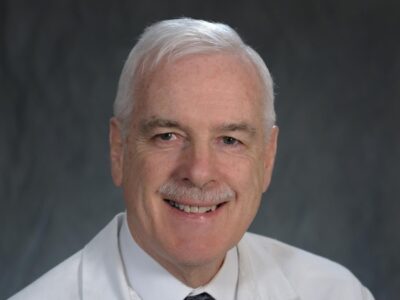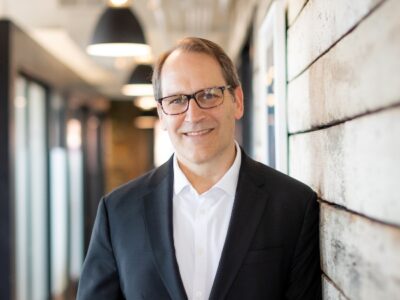The National Academy of Medicine recognized the value of correlative science in publicly funded clinical trials in 2010, recommending “the incorporation of innovative science into cancer clinical trials through the support and use of biorepositories.”
Artificial intelligence is starting to transform life sciences by accelerating drug discovery and development, optimizing clinical trials, and creating personalized treatments for cancer patients, speakers said at the Sept. 18 unveiling of the American Association for Cancer Research 2024 Cancer Progress Report.
Mace Rothenberg has stayed busy since stepping down as Pfizer’s chief medical officer in 2021 by pivoting to an ambitious endeavor in science communication: the Museum of Medicine and Biomedical Discovery.
The 2024 Albert Lasker Basic Medical Research Award went to Zhijian “James” Chen. The Lasker~DeBakey Clinical Medical Research Award went to Joel Habener, Lotte Bjerre Knudsen, and Svetlana Mojsov. The Lasker~Bloomberg Public Service Award went to Quarraisha Abdool Karim and Salim S. Abdool Karim.
City of Hope has received a $150 million gift from entrepreneurs and philanthropists A. Emmet Stephenson Jr. and his daughter Tessa Stephenson Brand to create a program focused on pancreatic cancer research.
The American Cancer Society said that Karen E. Knudsen “announced her desire to transition” from her role as CEO of the 111-year-old charity in order to pursue “the next phase of her strategy to accelerate progress against cancer.”
A meta-analysis of 25 studies—totaling over 5,000 participants—focused on a question that has been troubling patients, physicians, and regulators: Does treatment with CAR T-cell therapy contribute to the development of secondary cancers?
Tumors are able to form without any DNA mutations, according to a recent proof-of-principle study performed in flies. Epigenetic changes alone—even temporary alterations—induced permanent cancer cell fate.
Richard A. Rettig, the author of an authoritative history of the writing of the National Cancer Act of 1971, died on Aug. 7.
I was a practicing pediatric hematologist oncologist and researcher for 21 years. As a doctor, it was a tremendous privilege to be invited into the lives of patients and families dealing with blood cancers and be entrusted with their care. As a researcher, it was incredibly rewarding to help bring more effective blood cancer therapies to kids.















